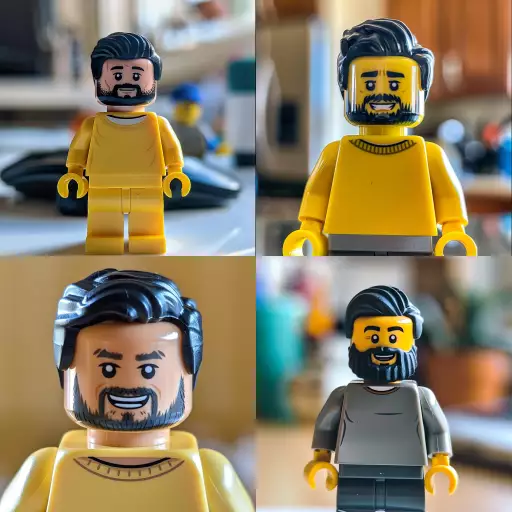Explore the Best AI Image Gallery

Blurring Boundaries: AI-Generated Media and the Evolving Creative Landscape
The realm of creativity is undergoing a seismic shift with the advent of artificial intelligence (AI)-generated media. From text and images to music and video, AI algorithms are now capable of producing content that was once considered the exclusive domain of human artists. This transformative technology presents both exciting possibilities and complex ethical challenges, forcing us to re-evaluate our understanding of creativity, authorship, and the very nature of art.
AI-powered tools are already being utilized by creatives across various industries. In advertising, AI can generate personalized content tailored to specific audiences, streamlining marketing campaigns. In film and gaming, AI algorithms can assist in creating realistic characters and environments, enhancing visual storytelling. Musicians are experimenting with AI-powered composition tools to explore new sounds and textures.
The Potential Benefits of AI-Generated Media
- Enhanced Creativity and Efficiency: AI can serve as a powerful tool for augmenting human creativity by providing novel ideas, generating variations, and streamlining the creative process.
- Democratization of Creative Industries: AI-powered tools can empower individuals with limited technical skills to create professional-quality content, fostering greater accessibility and diversity in creative fields.
- Personalization and Customization: AI can generate tailored content based on individual preferences and needs, creating immersive and engaging experiences for users.
Ethical Considerations: Navigating the Complexities
While the potential benefits of AI-generated media are undeniable, it is crucial to address the ethical concerns that accompany this technology.
- Authorship and Intellectual Property: The question of ownership and copyright arises when AI creates content. Who holds the rights to AI-generated works? How do we establish clear guidelines for attribution and ownership?
- Bias and Discrimination: AI algorithms are trained on vast datasets, which may contain inherent biases that reflect societal prejudices. This can result in AI-generated content perpetuating harmful stereotypes and discrimination.
- Misinformation and Deepfakes: The ability to create realistic synthetic media raises concerns about the potential for misuse, such as generating convincing fake news, manipulating public opinion, or impersonating individuals for malicious purposes.
Building a Responsible Future for AI-Generated Media
Addressing these ethical challenges requires a multifaceted approach involving policymakers, industry leaders, researchers, and the general public.
- Transparency and Explainability: Making AI algorithms more transparent and understandable is crucial for building trust and accountability.
- Bias Detection and Mitigation: Developing techniques to identify and mitigate bias in AI training data and algorithms is essential for ensuring fairness and equity.
- Regulation and Policy Frameworks: Establishing clear guidelines and regulations for the development and deployment of AI-generated media can help prevent misuse and protect individuals from harm.
- Public Education and Awareness: Raising public awareness about the capabilities and limitations of AI, as well as the ethical considerations surrounding its use, is crucial for informed decision-making.
AI-generated media has the potential to revolutionize the creative landscape, opening up new avenues for artistic expression and innovation. However, it is imperative that we approach this technology responsibly, addressing the ethical challenges head-on to ensure that AI serves as a force for good in society.
